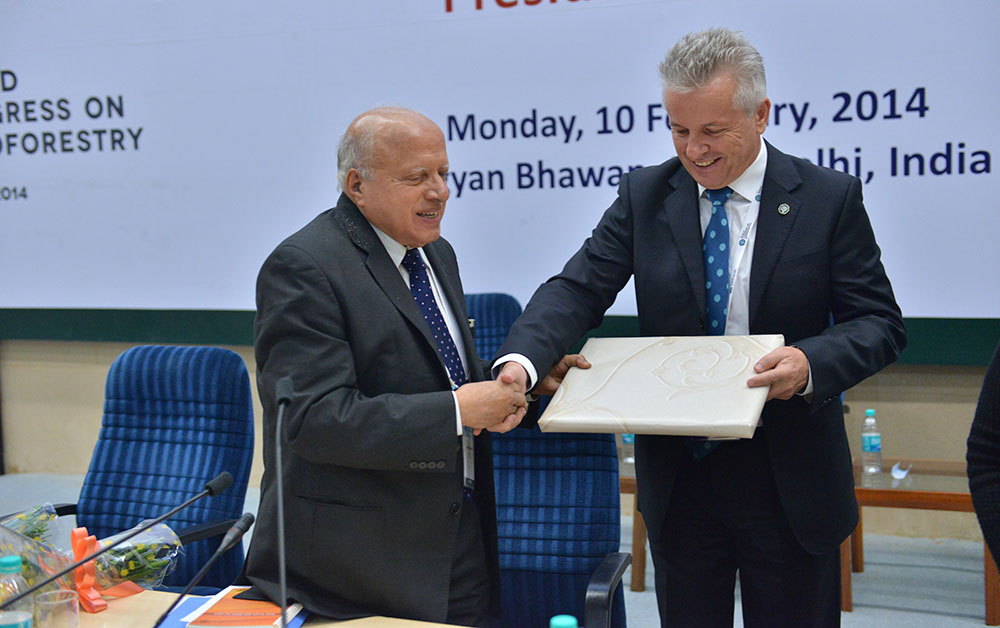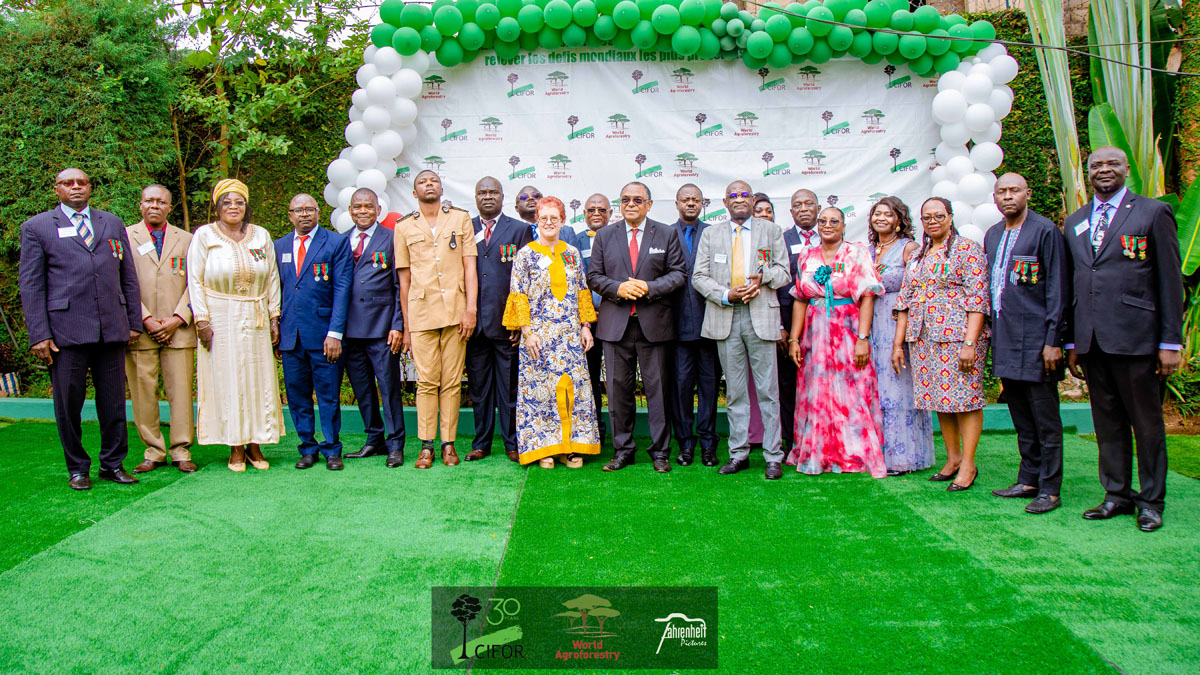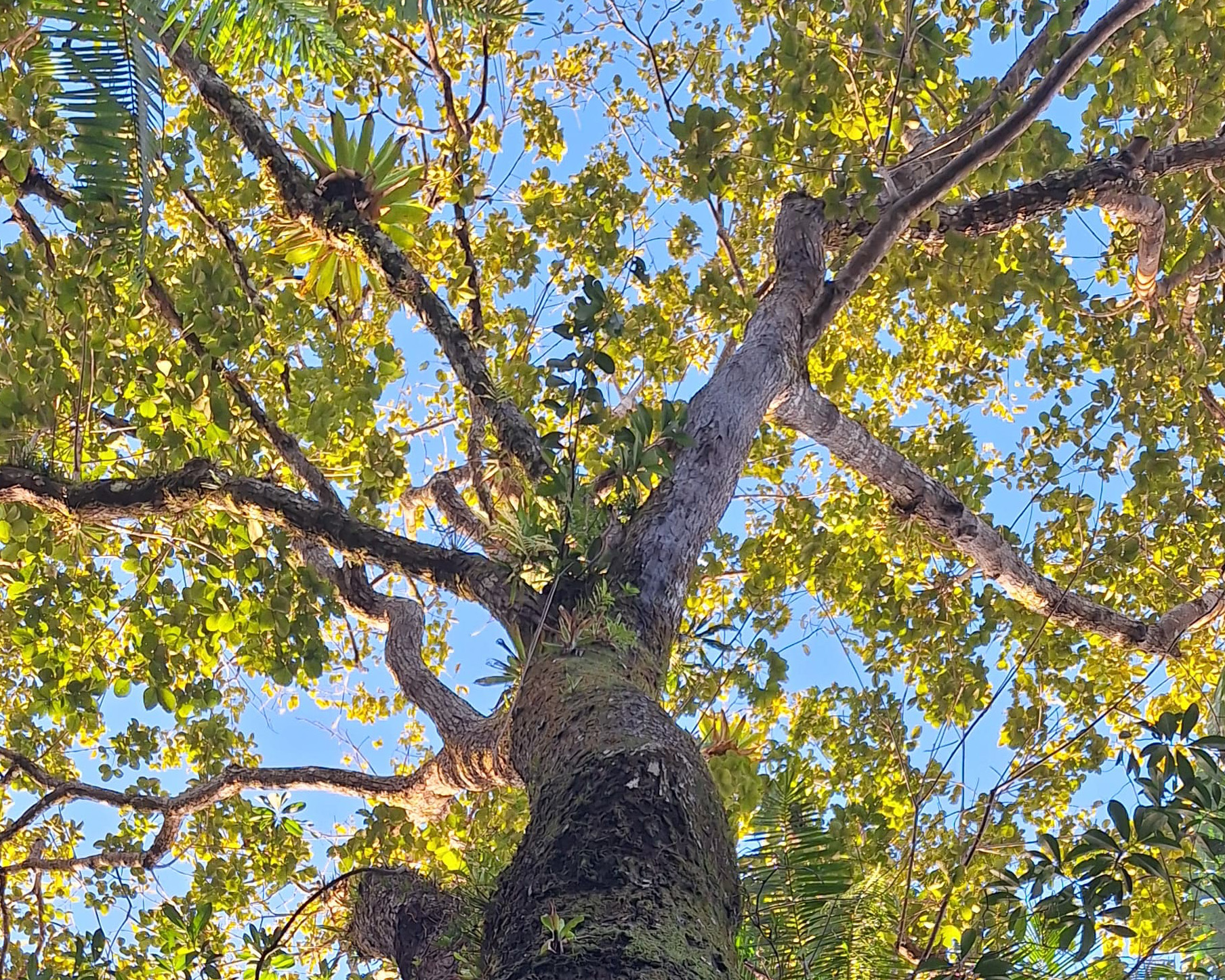
CIFOR-ICRAF honours M.S. Swaminathan for his role in the establishment of ICRAF and his unique contributions to agricultural science and food security. Swaminathan died in Chennai, India, on 28 September 2023 at the age of 98.
By David Henry
M.S. Swaminathan is considered one of the fathers of modern-day food security and a creator of institutions dedicated to biodiversity conservation, including ICRAF.
In 1977, the Indian-born plant geneticist was among a few key advisers who endorsed a proposal to set up a research body promoting the “trees on farms” concept, resulting in the founding of the International Council for Research in Agroforestry (ICRAF).
Swaminathan became its second chairman – while he was still secretary to the government of India in the Ministry of Agriculture and Irrigation – and held this post at ICRAF from 1979 to 1982. During this period, the organization moved from the Royal Tropical Institute in the Netherlands to its permanent home in Nairobi, Kenya.
“I am probably one of the few here who has seen the birth and growth of ICRAF,” Swaminathan said in an address at the World Congress on Agroforestry in New Delhi in 2014. “ICRAF was an institutional mechanism for providing an opportunity for research, development, extension, training and education in the field of agroforestry.”
The original document that prompted the establishment of ICRAF was “Trees, Food and People: Land Management in the Tropics” by J.G. Bene, H.W. Beall and A. Côté in 1977, with the support of the International Development Research Centre (IDRC).
In the same year, Swaminathan attended a small meeting convened by David Hopper, then president of IDRC, where it was decided to support the recommendation of Bene and his colleagues to set up a council for research into agroforestry.
“I am glad that ICRAF has grown and has also become a member of the larger family of CGIAR,” Swaminathan said in the 2014 address. “Agroforestry is a pathway to food and nutrition security, livelihood security, ecological security, and climate risk mitigation and adaptation.”
In 2002, ICRAF acquired the brand name «World Agroforestry» to reflect its global leadership in agroforestry research and development. ICRAF merged with the Center for International Forestry Research to form CIFOR-ICRAF in 2019.
“We are so grateful for the far-reaching contributions that M.S. Swaminathan made during his long and distinguished career,” says Éliane Ubalijoro, chief executive officer of CIFOR-ICRAF. “His passion to build a more equitable world laid the foundations for the unique culture of CIFOR-ICRAF and helped make the organization what it is today.”
Green versus evergreen
Swaminathan is remembered as a leading figure in Asia’s Green Revolution of the 1960s when he collaborated with U.S. agricultural scientist Norman Borlaug to develop new varieties of wheat with high-yielding characteristics. The rapid transformation of India’s food system saved millions of people from famine and paved the way for the country’s future status as one of the world’s largest producers of wheat, rice and other crops.
However, the Green Revolution came at a heavy cost to the environment. In the 1990s, Swaminathan therefore called for an “Evergreen Revolution” to avoid chemical use, groundwater pollution, soil erosion and the loss of biodiversity.
“About 15 years ago, I stressed the need for developing a technology and public policy for an evergreen revolution designed to improve the productivity of crops in perpetuity without associated ecological harm,” he said in 2010.
The Evergreen Revolution is based on an appropriate blend of different approaches to sustainable agriculture, such as organic farming, green agriculture, eco-agriculture, and agriculture based on effective micro-organisms, Swaminathan said.
Institution builder
Swaminathan, who held a doctorate in genetics from Cambridge University, was also instrumental in establishing institutions tasked with conserving crop genetic diversity, including the International Crop Research Institute for the Semi-Arid Tropics (ICRISAT) and the International Board for Plant Genetic Resources (now the Alliance of Biodiversity International and CIAT).
In addition, he headed the International Rice Research Institute (IRRI) and the International Union for Conservation of Nature (IUCN) during the 1980s.
“I had a ringside seat to learn from the most inspiring man I’ve ever known,” says Dennis Garrity, a distinguished senior research fellow and former director general of ICRAF, who was the first scientist hired under Swaminathan’s leadership at IRRI. “His book on the Evergreen Revolution was the source of the concept of evergreen agriculture. And so much more.”
Swaminathan, who won the World Food Prize in 1987, was also the first chairperson of the High-Level Panel of Experts on Food Security and Nutrition (HLPE) of the Committee on World Food Security (CFS), the United Nations body for assessing the science related to world food security and nutrition, and whose work involved several CIFOR and ICRAF scientists in landmark global reports.
“He had a unique capacity to handle difficult and controversial issues in a truly inclusive way,” says Vincent Gitz, CIFOR-ICRAF director of programme and platforms who coordinated HLPE from 2011 to 2015. “In his words, the role of science was not to solve all contended issues, but to make people understand why they eventually disagree, and therefore to help dialogue and progress on more solid and shared grounds.”













